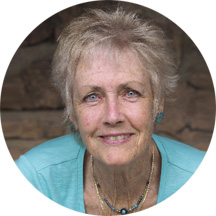WHEW! We made it through another holiday season. Is it just me, or are the decorations going up earlier every year? I saw Christmas ornaments peeking around pumpkins on Halloween.
To welcome the New Year we sing, “Auld Lang Syne.” Why, when many of us don’t even know what it means? And why has it survived since the Scottish poet Robert Burns set down the lyrics in the late 1700s?
I think the tradition continues because it stirs something deep inside us—-regardless of family heritage and the country we live in. It reminds us of long-standing friendships which live in our hearts. It’s also about beginnings and endings which we live every day. And it acknowledges times gone by.
When we see how “Auld Lang Syne” is used around the world, it’s a song about relationships:
~~ In Scotland, it comes at the end of social gatherings and dances, the participants join hands and sing to days gone by.
~~ In America, it is sung by various colleges as a farewell tribute to graduates going out in the world. The Benevolent and Protective Brotherhood of Elks sings it as a tribute to their members who’ve died.
~~ In Germany, Poland and Mexico, it is used as a farewell song by members of the Scouts organizations.
~~ In China, it is sung at student graduations honoring “friendships forever,” and at funerals, signifying the ending of relationships.
~~ In Finland, the song toasts friendships: “This friendship shall never end, but will last forever. Great then is our joy, once we meet again. Our roads may separate, the memories will remain. So thank you for everything and bye farewell.”
~~ In France, Greece, Chili and Hungary, it is sung as a farewell song.
~~ In Taiwan and Zimbabwe, the tune is generally only associated with funeral services.
So “Auld Lang Syne” reminds us of some really important lessons in our lives—and not just on New Year’s Eve:
Treasure friendships right now. Say “thank you” for times shared and experiences lived to those who touch our lives. Those friendships we create today will be those who share our history in the years to come.
Realize that each moment holds beginnings and endings. We can start something new, we can start over on something old, we can dream a new dream, we can live old times again and again, we can close chapters of our lives and move on.
Accept that farewells are a part of life. We can’t hold onto those people around us. They—or we—will be gone. Farewells free us and grieve us, and they serve as reminders to live fully right now.
Acknowledge the past. That doesn’t mean dwell there to the exclusion of the present, or lose ourselves in missed chances and lost loves. It means look back at how we have lived, the people who’ve helped and hindered, the luck and blows we’ve had.
When we sing it this New Year’s Eve, we honor our lives in all their glory and silliness…for auld lang syne.

